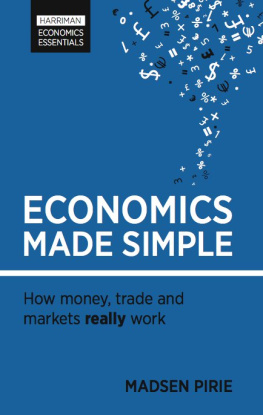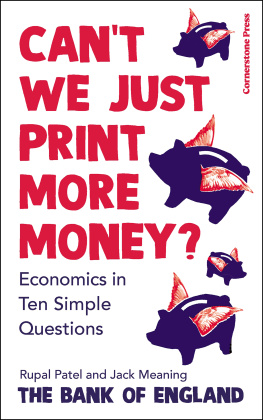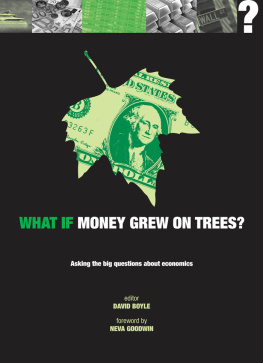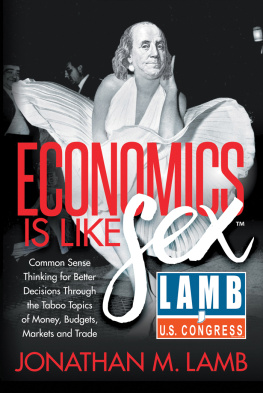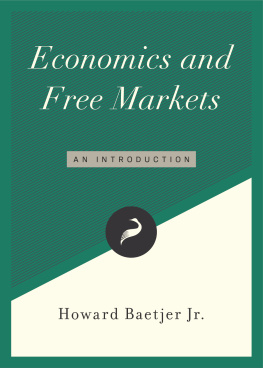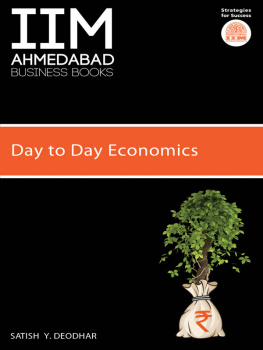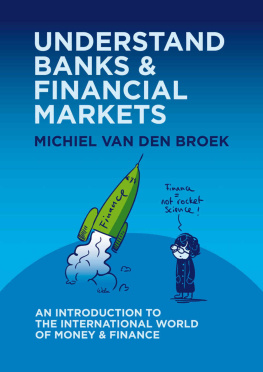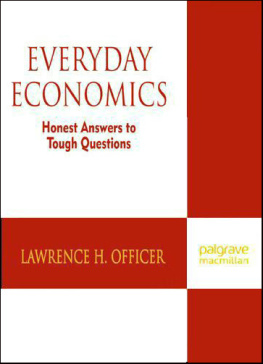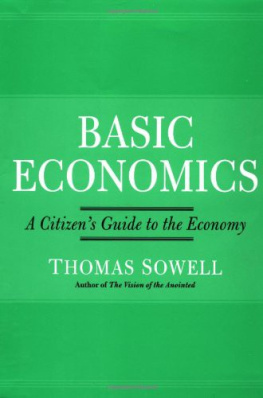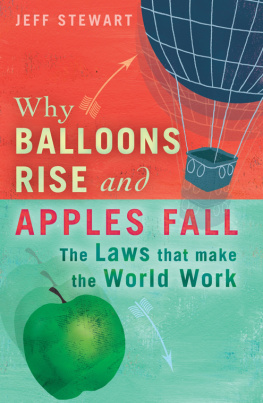Dr Madsen Pirie is President of the Adam Smith Institute (www.adamsmith.org) and Senior Visiting Fellow in Land Economy at the University of Cambridge. He was awarded the National Free Enterprise Award in 2010 (jointly with Dr Eamonn Butler). He frequently appears as a commentator on television and radio, and has published articles in most major national newspapers and magazines. Madsen often addresses university and school audiences on economic and policy issues, and occasionally participates in panel discussions and speaks at international conferences. He is a graduate of the Universities of Edinburgh, St Andrews and Cambridge.
Other books by Madsen Pirie
Think Tank (2012)
101 Great Philosophers: Makers of Modern Thought (2009)
Freedom 101 (2008)
How to Win Every Argument: The Use and Abuse of Logic (2007)
The Sherlock Holmes IQ Book (with Eamonn Butler) (1996)
Boost Your I.Q. (with Eamonn Butler) (1991)
For young adults
The Emerald Warriors (2011)
Tree Boy (2011)
The Waters of Andros (2007)
Children of the Night (2007)
Dark Visitor (2007)
www.madsen-pirie.com
Introduction : Everyday economics
ECONOMICS IS VERY MUCH in the news in todays world. In ways that would have been inconceivable a half century ago, we are made aware that much in our daily lives depends upon economic events. Our standard of living, our ability to afford the things we value, our future prospects, and eventually our pensions are all influenced by economic activity. Some of this takes place close to home at a personal level, but some events happen in distant places, set in motion by people we will never meet.
Economics is all around our everyday lives, yet much of it seems opaque and mystifying to ordinary people. Commentators appear on our screens or in the pages of our newspapers, and make pronouncements about what they believe has been happening and will happen, and much of what they say seems arbitrary and baffling.
There has probably never been greater interest in economics, given global financial crises and domestic downturns. People are aware that what happens in financial news will affect them, and many of them wish to know how and why. Some see their spending power going down; others face the possible loss of their job. They want to know the reasons such things are happening.
Professional economists are rarely helpful. Some affect a jargon which makes their subject esoteric and inaccessible, such that meaningful discussions can take place only with their colleagues. Many academic economists have retreated from the real world into mathematical models which purport to show relationships between past data, but tell us little about the present and nothing about the future.
Yet the essentials of economics are not difficult to understand or explain. The subject is not a science like physics or astronomy, and can never be so because its subjects are human beings, independently motivated and quite capable of changing their minds and the way they behave, unlike the atoms and stars of the physical sciences.
Economics is about human behaviour. It is about the ways we have developed for dealing with each other in complex relationships. It is about how people whose time and resources are limited choose to allocate those resources, and how they interact with others to do this as effectively as they can manage.
No individual or group sat down and invented economics by setting out the principles that govern our exchanges. Economics was certainly devised by humans, but not consciously or deliberately. It developed naturally out of the ways people developed for dealing with each other and with their resources. It is a natural outgrowth of human personality and social co-operation.
The complex relationships and institutions of modern economics all have their origins in the ways we interact with each other, and in how we choose to live our lives.
The aim of the following pages is to introduce the subject of economics in ways that non-economists can readily understand. Without jargon or complex equations, the aim is to show how easy and intuitive the subject can be once its fundamentals are understood. Welcome to the world of economics.
Madsen Pirie
Cambridge, 2011
Trading things, creating wealth
Splash! A smile cracked across the old mans walnut-stained face as the sleek bird broke the surface. He could see the silvery fish, its tail glittering as it writhed in the cormorants throat. Good. That made six today.
Black Silk was his favourite bird. As it fluttered onto the end of his boat, the old man stroked its head affectionately and took the fish from its beak. He untied the ring from the birds throat and rewarded it with a couple of smaller fish which the bird eagerly snapped up. His weather-beaten eyes took in the sun, now low in the sky. Six was enough. With a contented sigh he bound the remaining fish to his pole with the others and headed for the shore.
The market was already beginning to break up as dusk neared, but he knew that the stall he wanted would still be in business. Sure enough, the stallholder greeted him with a quick smile and a bow, a flash of interest lighting up his eyes as they flicked to the six fish on the pole over the old mans shoulder.
After courtesies were exchanged it was time for business. The old man held out the days catch for inspection. The stallholders eyes narrowed as he inspected each fish, looking at the bright eyes and clear, silvery skin. Finally he pointed to a bag of rice at the back of his stall. A patient smile flitted across the old mans face as he shook his head. He pointed to a larger bag of rice next to the small one. The stallholder hesitated a moment, gave the fish another quick glance, then smiled himself and nodded. The deal was done, the exchange made. The old man strolled off contentedly. It had been a good day, and Black Silk had earned him a two-week supply of rice.
The stallholder rubbed his hands as he walked off. He knew just the person who would reward him handsomely for such excellent fresh fish. He was right, too, for the restaurateur spent only moments examining and prodding the fish before producing a wad of currency and peeling off some notes. Once again there were bows and mutual smiles as the exchange was made. The restaurateur chuckled inwardly at the thought of how those fish would look later that night, dressed and cooked, on the plates of his diners, how delighted his customers would be, and how many extra meals hed be able to sell.

